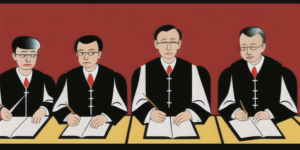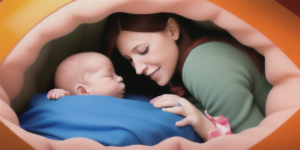Imagine a person who is just like everyone else. They wake up each morning, carry out their daily routines, and go to bed at night, only to repeat the process the next day. This person, like many of us, is locked into their habits. They are hooked, addicted if you will, not to any substances, but to something more intangible, something that silently shapes their existence – their thoughts.
This concept of ‘thought addiction’ may sound odd at first. After all, thinking is a part of our nature. We think about what we’ll have for breakfast, how our day will unfold, our plans for the future, and memories of the past. But the problem lies when we find comfort in these thoughts, in the familiarity of the routine they form, to the extent that we become prisoners within our own minds.
Imagine a person afflicted by depression, living amidst a raging inferno, their life a continual state of distress. Despite their situation, they’ve created a safehouse within this chaotic landscape. This safehouse, though surrounded by the flames of their torment, offers a warped sense of comfort, a haven amidst the chaos. The thought of leaving this house, venturing into the unknown, incites a greater fear than the reality they live in. Thus, they choose to stay put, ensnared by the shackles of their thoughts, entrapped in the loop of their existence.
Similarly, many of us live life entrenched in routines. We follow a set pattern, day in and day out, for years, even decades. Our daily routines, once designed to bring structure to our lives, become comfort zones that we fear to step out of. Therein lies the problem: we have become so accustomed to the comfort and safety these routines provide that we hesitate to seek out new experiences, new possibilities.
In our quest for comfort, we sacrifice novelty. We stick to the familiar, the predictable, the comfortable. We avoid the unknown, the mysterious, the uncomfortable. But what we fail to realize is that comfort often breeds complacency. It lulls us into a state of inactivity, a state of non-growth.
There’s a paradox at play here. While the comfort of routine provides a sense of safety, it also limits our scope for exploration and growth. We stop seeking out new experiences, new learning opportunities. We stop growing, and instead, stay stuck in the same place.
Awareness is key here. To break free from our thought addiction, we must first become aware of it. We need to recognize the patterns that our thoughts form, the routines we have established, and how they are holding us back. Awareness is the first step towards change. It is the beacon that illuminates the path to freedom, the compass that guides us towards new horizons.
Most of our fears are borne out of our thoughts. They are projections of our past experiences, our assumptions of the future. Our minds, with their capacity for imagination, create scenarios that trigger our fears. We end up fearing things that have not happened, and may never happen. This fear, rooted in our thoughts, often controls our actions and decisions, keeping us trapped in our comfort zones.
In Buddhism, ignorance is defined not as lack of knowledge, but as unconsciousness. Ignorance, in this context, refers to our unawareness of our thought patterns and the hold they have over us. We often label situations or experiences as negative, not because they are inherently so, but because we associate them with our fears. We categorize them as threats, as dangers, because of our unconscious conditioning.
The present moment is our most valuable asset. It is in the present moment that we live, breathe, and experience life. However, our minds, preoccupied with the past and future, often overlook the present. We fail to realize that the present moment is the only moment that truly exists, and it is in this moment that we have the power to change our reality.
Our routines, like our lives, should not be rigid. They should be fluid, adaptable, open to change. The beauty of life lies in its unpredictability, in the endless possibilities it presents. To truly live, we must embrace change, step out of our comfort zones, and explore these possibilities.
Change, however, is not easy. It requires effort, courage, and most importantly, awareness. To change our lives, we must first change our thoughts. We must confront our fears, question our beliefs, and challenge our conditioning. We must bring our unconscious thoughts into the light of consciousness, recognize their influence, and consciously choose to let them go.
Awareness allows us to see our thoughts for what they are – just thoughts. They are not facts, not realities, not certainties. They are simply mental constructs, ideas that our minds have created. Once we understand this, we can choose to change our thoughts, and in doing so, change our lives.
Our minds are powerful tools. They have the power to create our reality, shape our experiences, and determine our actions. But they also have the potential to imprison us within our own thoughts, trap us in a cycle of fear and doubt. The key to unlocking this prison lies within our awareness, our consciousness. By bringing consciousness to our thoughts, we can overcome our thought addiction, step out of our comfort zones, and venture into the unknown.
Our lives are a journey, a continuous exploration of new experiences and possibilities. To embark on this journey, we must first free ourselves from the chains of our thoughts, break away from our routines, and embrace the unknown. The path may be uncertain, the destination unknown, but the journey itself is the reward. It is the journey that transforms us, shapes us, and ultimately, sets us free.
By understanding and accepting that change is an integral part of life, we can liberate ourselves from the constraints of our thought addiction. We can explore new possibilities, experience new adventures, and learn new lessons. Life, after all, is not meant to be lived in a straight line. It is a dynamic, ever-changing landscape, filled with endless possibilities and opportunities. And it is through our exploration of these possibilities that we find our true selves, our true purpose, and our true freedom.
Breaking free from the addiction of our thoughts requires awareness, courage, and a willingness to step out of our comfort zones. It involves acknowledging our fears, challenging our beliefs, and confronting our conditioning. It requires us to live in the present moment, to embrace change, and to seek out new possibilities. And most importantly, it requires us to understand that our thoughts are not facts, but merely mental constructs that can be changed. By doing so, we can free ourselves from the shackles of our thoughts, embark on a journey of self-discovery, and truly live a life of freedom and fulfillment.





